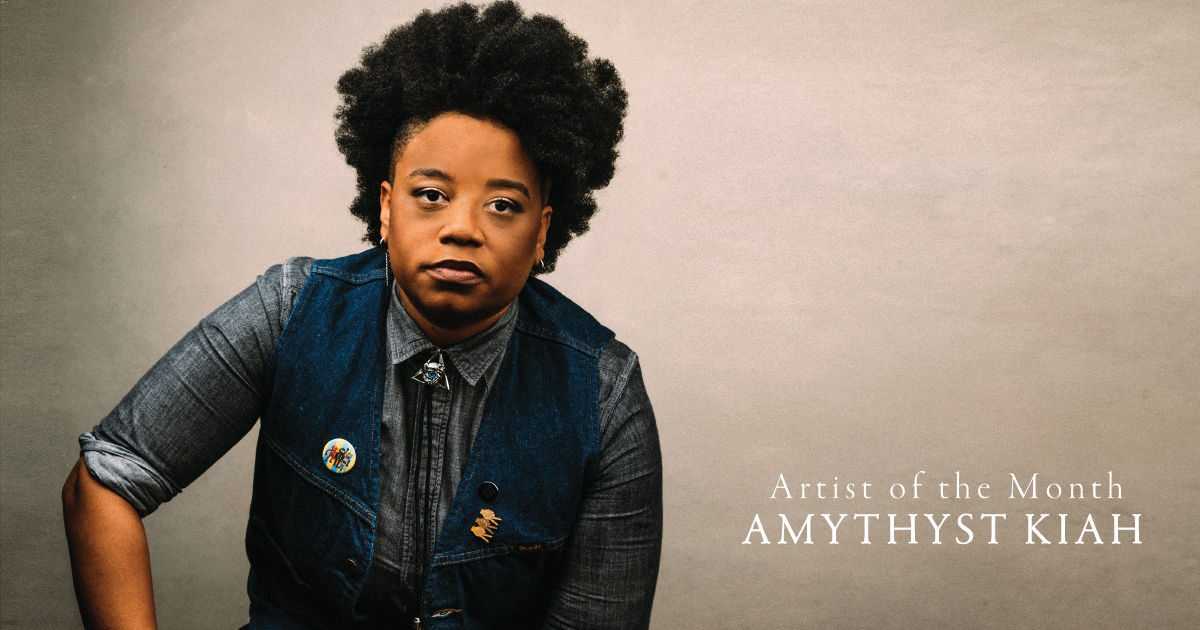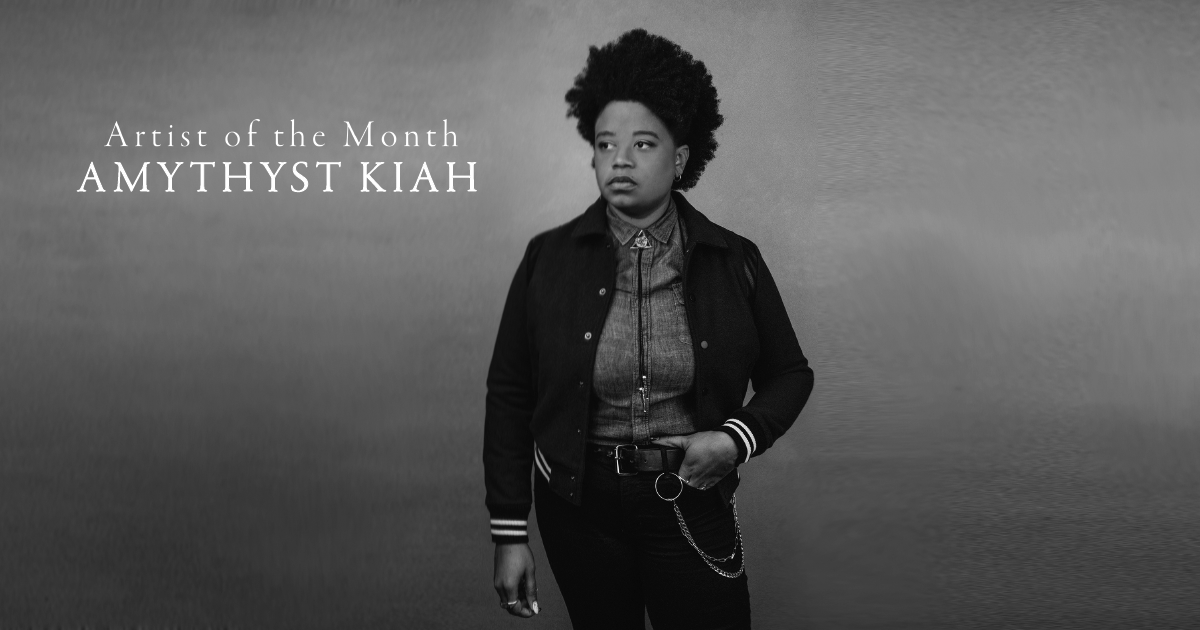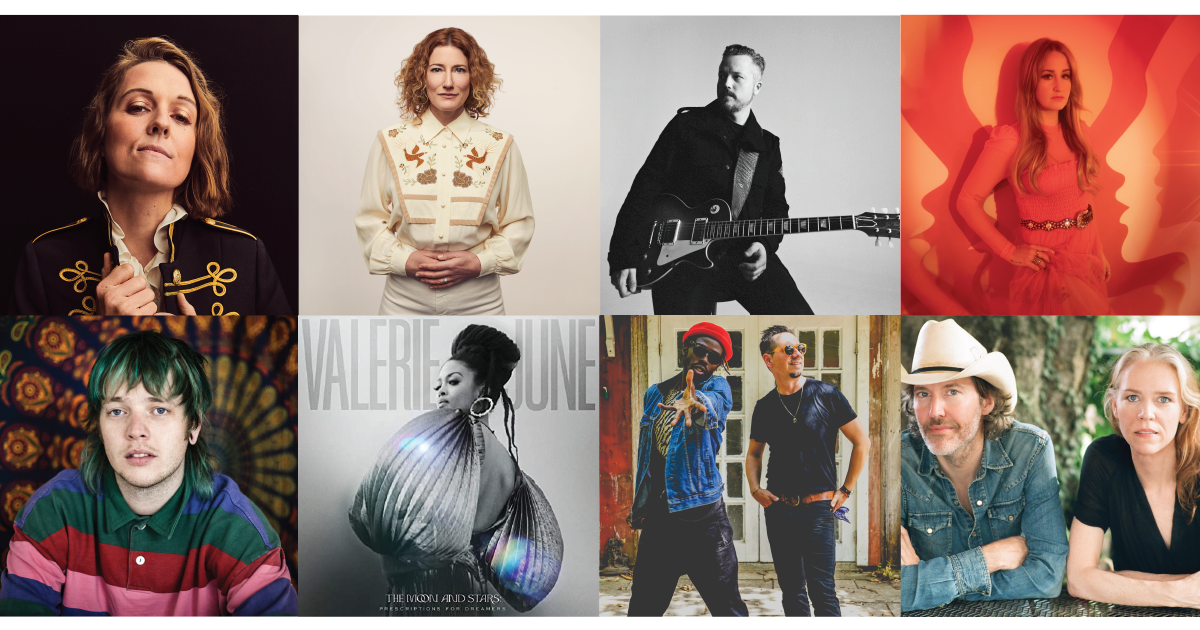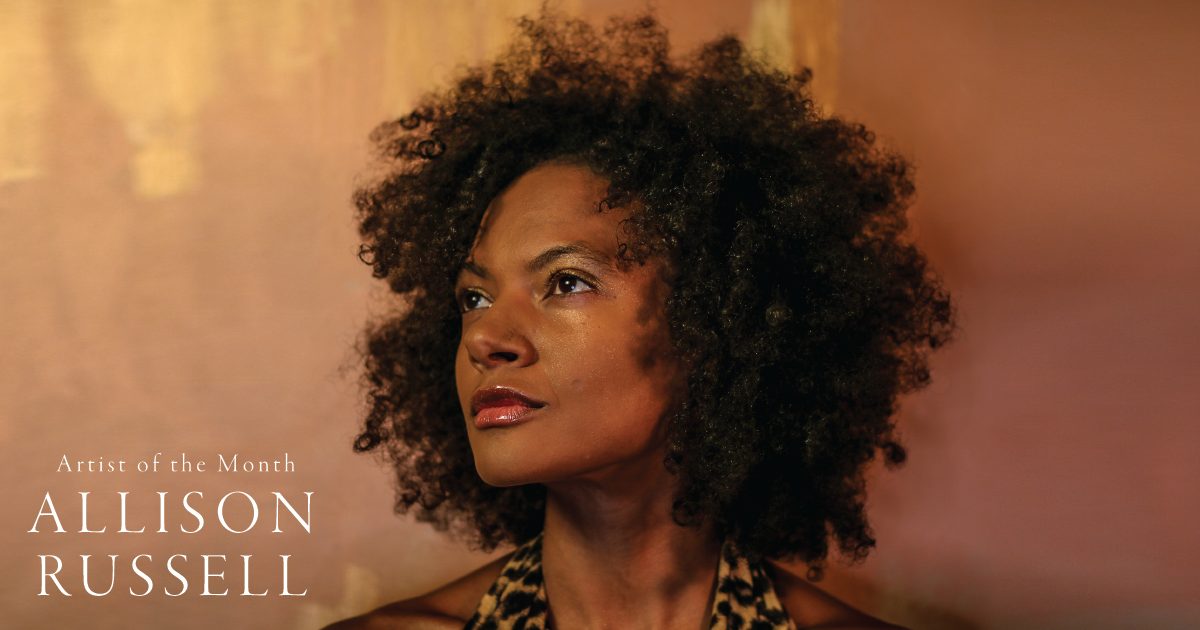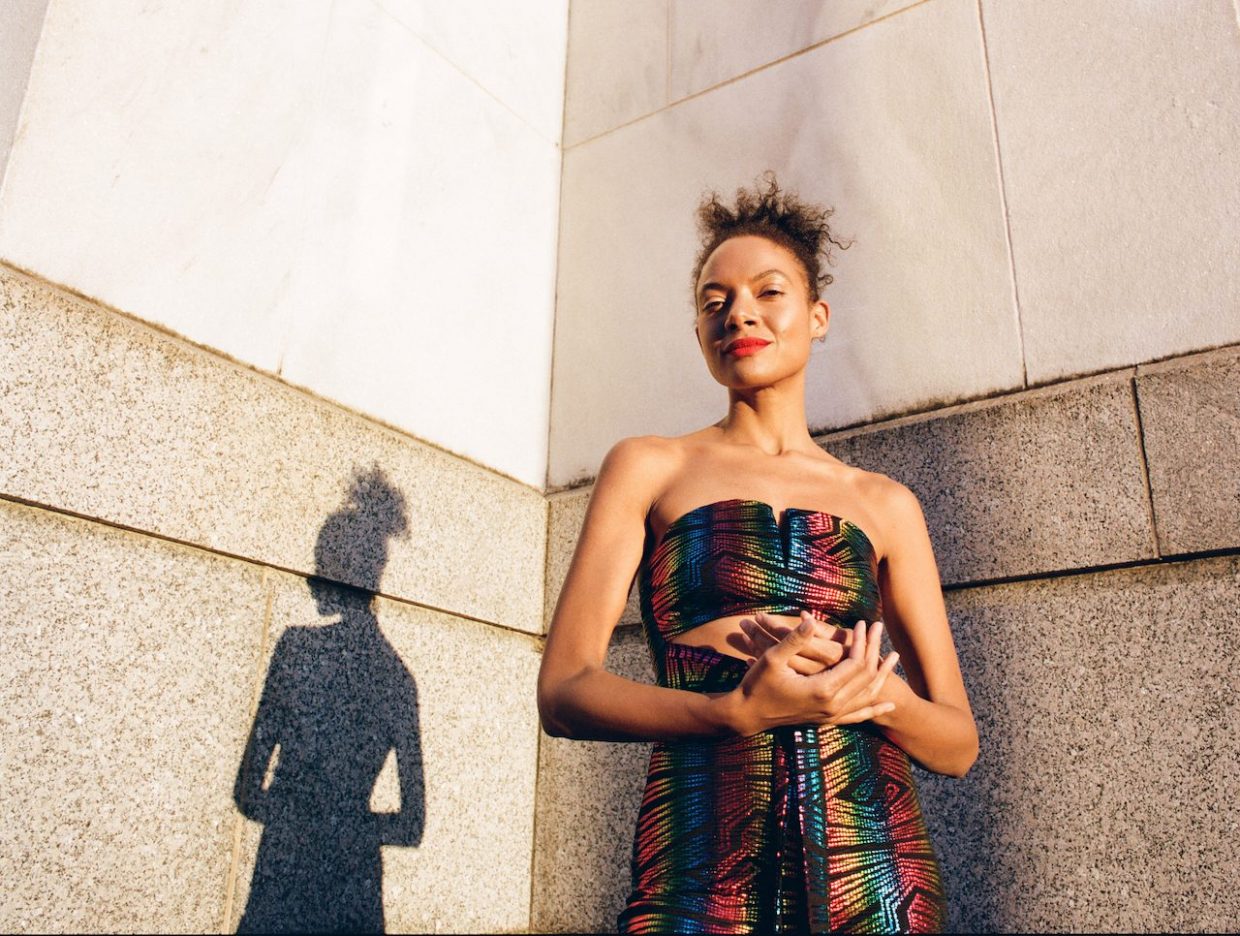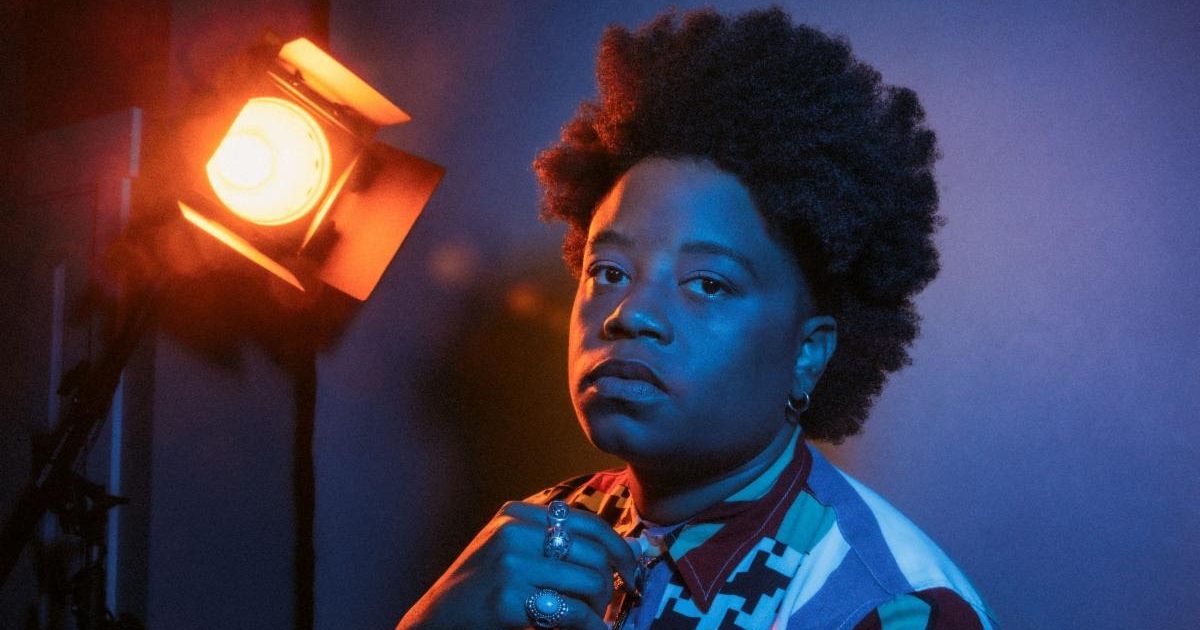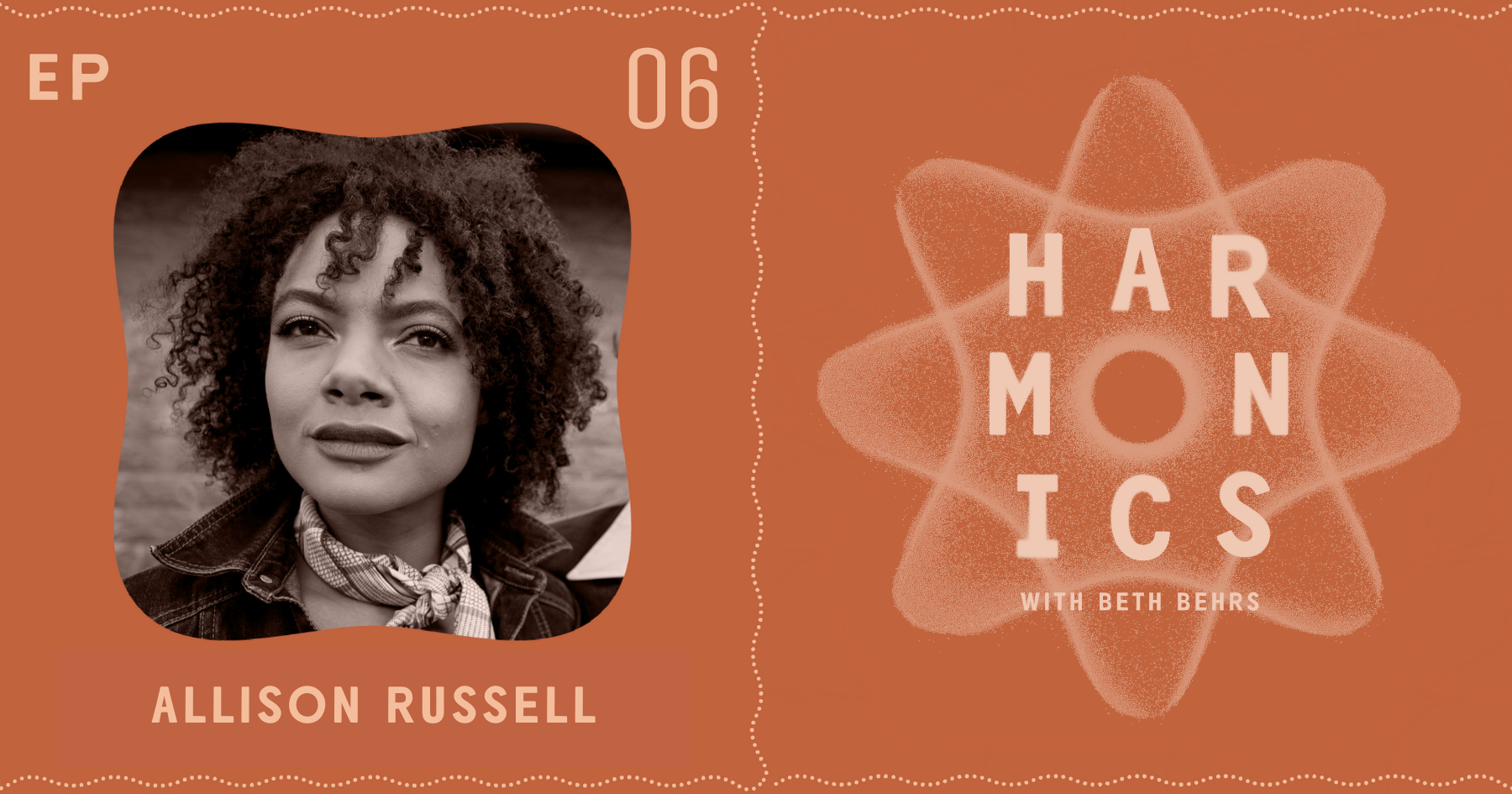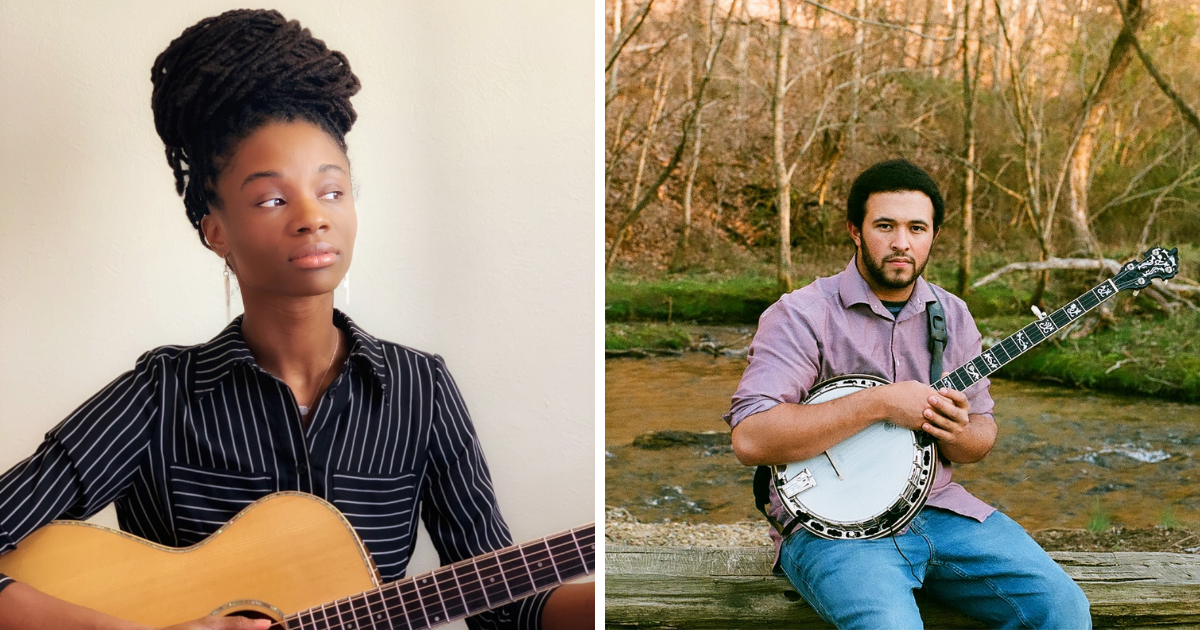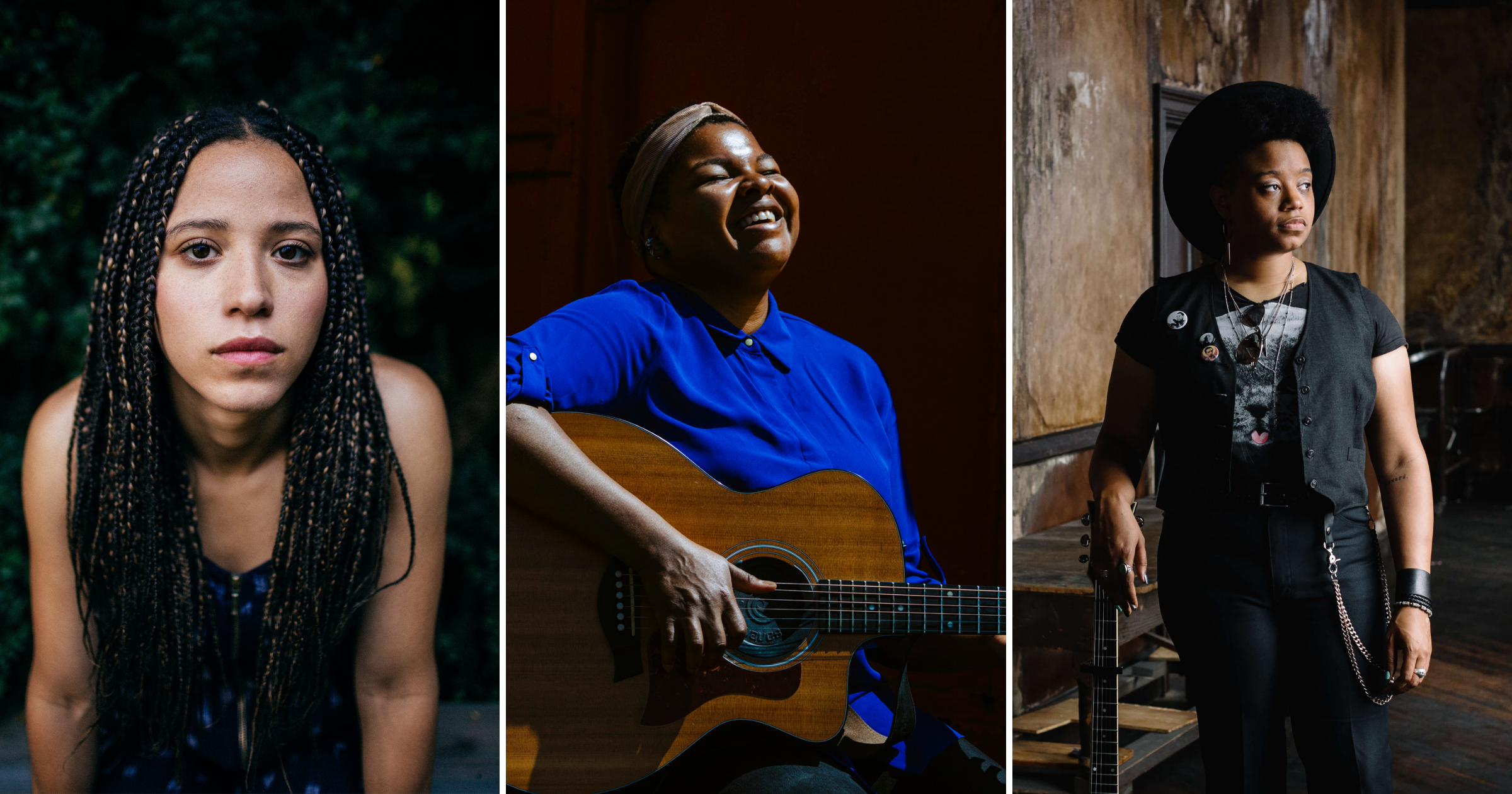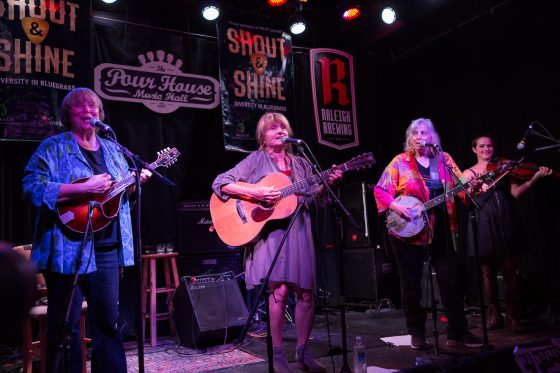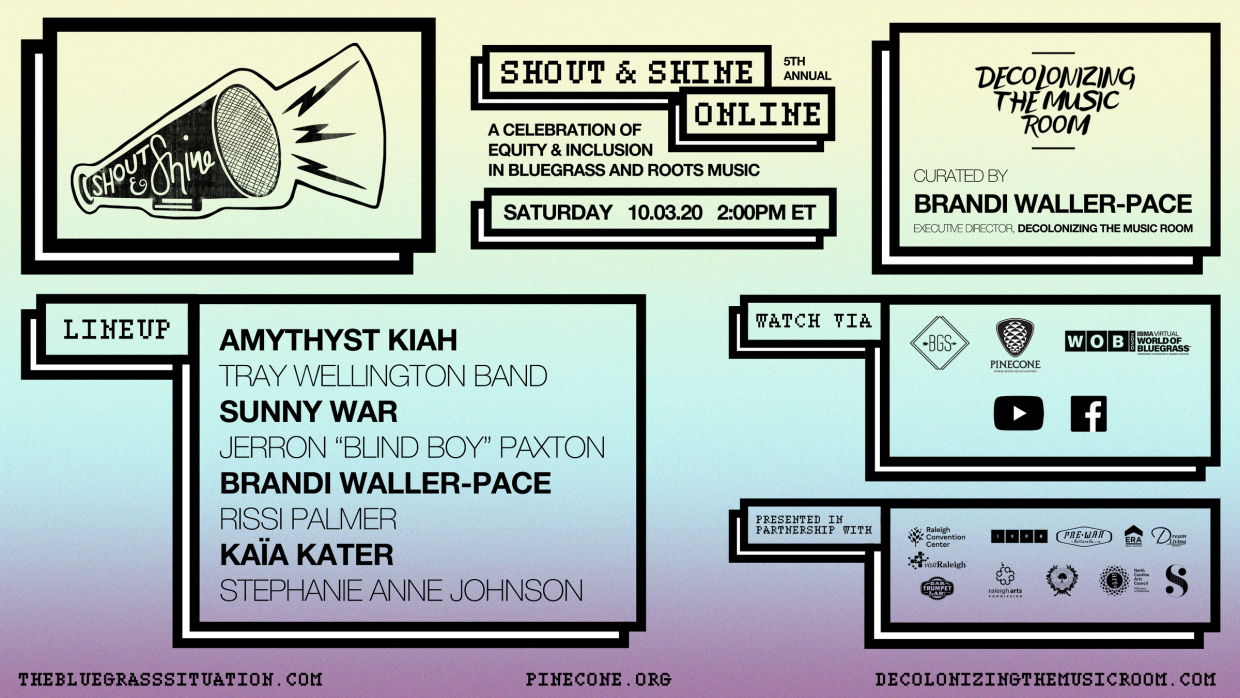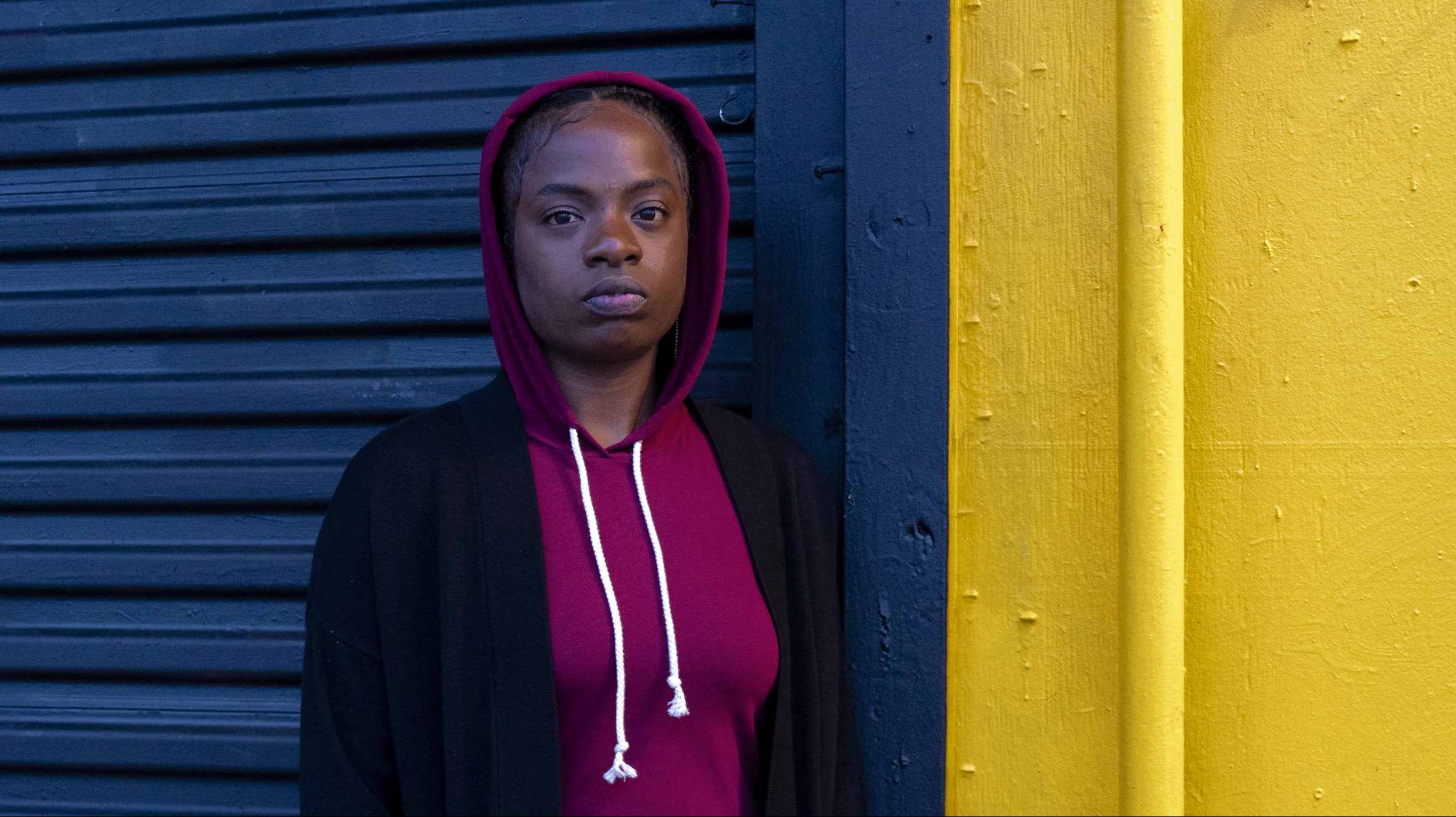Amythyst Kiah took great pains to get Wary + Strange just right. After studying banjo and old-time music at East Tennessee State University in her twenties, she gained a reputation as an intense live performer, so much so that she was asked to join the roots supergroup Our Native Daughters, where she played alongside Rhiannon Giddens, Allison Russell, and Leyla McCalla. The group recorded Kiah’s bluesy anthem “Black Myself” as the opening cut on their 2019 album, Songs of Our Native Daughters.
The experience of working directly with her contemporaries — even the idea of considering them as her contemporaries — was a profound experience, one that stirred her to write songs that took bigger risks and told bigger truths about herself. She’d been struggling to make this record for several years by then, booking sessions with various producers, but never feeling satisfied with the results. She didn’t hear herself in the music.
That changed when she began working with producer Tony Berg (Aimee Mann, Phoebe Bridgers), and together they devised a way to combine all of Kiah’s influences rather than compartmentalize them. Wary + Strange is a headphones album, one that listeners will pore over intently. “It feels good to make music that helps people get through hard times,” Kiah tells the Bluegrass Situation.
Editor’s Note: Read the second half of our BGS Artist of the Month interview with Amythyst Kiah here.
BGS: Are you surprised by the response this record has gotten?
Kiah: This is my label debut. So it’s really the first time that I’ve worked with a giant team of people helping me get my music out into the world. So the whole experience has been completely new. My focus was really tol make this album where I’m excited about it and happy with it, so I felt pretty confident about it. Then I started promoting it and things started coming in, and I didn’t realize how much was going to come in because I’d never done it before. So now I have the craziest workload that I’ve had in a long time. I’m just drinking a lot of caffeine and hanging on as long as I can, because I’m getting an opportunity that a lot of artists don’t get.
And add to that the fact that you can actually play live shows again, if only for a little while. What has the audience reaction been like?
People are really excited to get back to playing or get back to just seeing live music. All of us that were doing virtual gigs for a year and a half. Any time I’ve played a virtual gig, I’ve made a point to say that we’re all in this weird situation together, so let’s make the best of it. The audience is just looking at me through a camera lens, and I’m looking at them through a camera lens, but we’re doing our best to share our energy with one another. I can’t tell you how many times over the past several shows that I’ve gone out to the merch table and people have told me, “This is the first show I’ve seen since quarantine.” They are so excited, so the energy has been more intense than I can remember.
You mentioned something a minute ago about wanting to make sure you were happy with this record. You recorded these songs several times trying to get to that point, and I wondered if you could talk about that process. What was missing from those early songs?
The first time I made the record, it was with Dirk Powell in Louisiana, and it was right before the sessions for Our Native Daughters. But I didn’t really have a strong idea of what I wanted. I was dealing with some writer’s block at the time, and I was putting pressure on myself to put out another record. So I was recording a lot of songs that I didn’t really play anymore, and it felt like I was just trying to fill out an album.
At the end of the recording process, it sounded like a record that was very safe. It sounded good but it was safe. It wasn’t showing any real musical growth from me as an artist. I felt like I was compartmentalizing a lot of my folk stuff and the stuff I played with my backing band. I had this folk side of me and this rock version of me, and it just slapped me in the face that all of those songs needed to be on the record.
What was the nature of your writer’s block? How did you get through it?
There was a period when I wasn’t really writing songs that much. A lot of it had to do with the fact that I was repressing a lot of emotions regarding my mother’s suicide. For twelve years I would do anything I could to avoid getting in touch with those feelings. I was in survival mode, and when you’re in survival mode it’s really hard to think deeply about some of your choices. I was just trying to ignore it all. By the time I got to Our Native Daughters, I’d written a handful of songs over the course of two or three years. That was my second year going into therapy, and I’d made a couple of breakthroughs in understanding how my grief was affecting other aspects of my life.
Being around Rhiannon and Leyla and Allison and writing songs with them, I started to understand something important about myself. We all had this similar background of being the token Black person in a genre that has some very obvious African influences. But that history and those identities had been removed and the music had been segregated. We were able to share stories about being confused with other people, stuff like that. Just to be able to have that conversation with other people who understood where I was coming from was wonderful. Being in that environment gave me the courage to write about the things I was talking about. I’d been afraid to put those experiences into songs because I have this shut-up-and-sing policy for a long time. So that was an important moment for me.
We’re telling stories of our ancestors who were able to survive the transatlantic ship voyage. They survived the Civil War. Reconstruction. Segregation. Civil Rights. We’re standing on the shoulders of so many people who survived, and we’re here because of their survival. Once you start to make those big spiritual connections beyond what you’ve read in a history book, suddenly there’s nothing to be afraid of. If they can survive, then I can survive writing a song about how I feel. There was a new sense of empowerment to really write about myself. So after that project, I wrote more songs. I wrote “Soapbox.” I wrote “Opaque.” I wrote “Firewater.”
Did that change how you approached recording the album?
Really I was still figuring myself out and how I wanted to be defined as a musician. It was a lot of self-exploration. I recorded the album again at Echo Mountain Studios in Asheville, North Carolina. But the third time’s the charm, as they say. I met Tony Berg, and he was able to help me encapsulate the inherent wariness and strangeness of all of these songs. We were also able to keep that essence of roots music while adding in these different textures and sounds. He actually told me once while we were recording, “I don’t think I’ve heard a record that sounds quite like this one.” He’s obviously listened to way more music than I ever have, so I knew we had something special at that point. I knew that would be the final time recording the album.
It sounds like you had to go through those first two versions of the album to get to that point.
Yes. I definitely don’t want to say that those first two didn’t sound good or weren’t worthy. And I’m appreciative of anybody who spent time in any capacity working on them with me. It took all of those moments to get where we are now. But something was always missing, and you shouldn’t be too afraid to explore that and figure out what’s missing. Unless you’re 100 percent excited about your record, it’s going to be hard to go out and play those songs.
There’s a malleable quality to your songs. I’m thinking about the two versions of “Soapbox” on the record, or the solo version of “Black Myself” and the Our Native Daughters version. You talked about learning not to compartmentalize your music, but the songs seem like they could fit so many different settings. “Black Myself” in particular sounds very different when you’ve got several people singing as opposed to just one person singing.
I think that’s a recurring theme that’s always going to be part of my creative process. I spent a good amount of time in my twenties focusing on reinterpreting songs that already existed and learning about the different ways to make it your own. Or at least give it another perspective. It made me hyperaware of, “OK, what am I saying? What if I deliver this particular line this way or what if I go to a minor chord here instead of a major chord. How does that change the meaning?” I’ve always been fascinated with that kind of thing.
That’s just as valuable as writing new songs, because that’s the way most of us learn music. We learn other people’s music, and within that we find our own voice. Reimagining certain songs — even if they’re your own songs — is a valid way to express yourself. Balancing that can be a little tricky. With the various incarnations of this album, I was rehashing a lot of songs that I’d already done. I was taking songs I’d already recorded and rerecording them in a different way. So I had to make myself write new material. I didn’t want to stop moving forward.
As for “Black Myself,” I remember thinking, “Man, I wish I could have some people singing with me on this song.” It’s not even just from a production standpoint. It was more personal. So it was good to record with Rhiannon and Allison and Leyla sticking up for me, you know? It’s different without them. For the version on my record I was doing my own background vocals, which is really enjoyable and helps me dig into a song in a different way. But I definitely missed singing with them. But I was really excited to record that song by myself, because it’s a way to continue that conversation about white supremacy and anti-racism. It was a good opportunity to bring the song forward.
Editor’s Note: Read the second half of our BGS Artist of the Month interview with Amythyst Kiah here.
Photo credit: Sandlin Gaither
